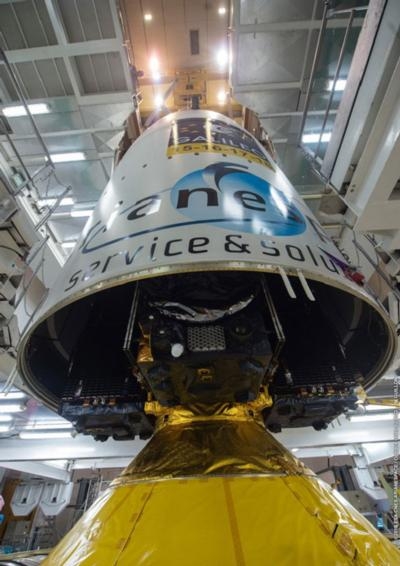Wed, Nov 16, 2016
Advertisement
More News
 ANN's Daily Aero-Term (05.19.24): Back-Taxi
ANN's Daily Aero-Term (05.19.24): Back-Taxi
Back-Taxi A term used by air traffic controllers to taxi an aircraft on the runway opposite to the traffic flow. The aircraft may be instructed to back-taxi to the beginning of the>[...]
 Aero-News: Quote of the Day (05.19.24)
Aero-News: Quote of the Day (05.19.24)
“Our WAI members across the nation are grateful for the service and sacrifice of the formidable group of WASP who served so honorably during World War II. This group of brave>[...]
 Aero-News: Quote of the Day (05.20.24)
Aero-News: Quote of the Day (05.20.24)
“Many aspiring pilots fall short of their goal due to the cost of flight training, so EAA working with the Ray Foundation helps relieve some of the financial pressure and mak>[...]
 ANN's Daily Aero-Term (05.20.24): Blind Speed
ANN's Daily Aero-Term (05.20.24): Blind Speed
Blind Speed The rate of departure or closing of a target relative to the radar antenna at which cancellation of the primary radar target by moving target indicator (MTI) circuits i>[...]
 ANN's Daily Aero-Linx (05.20.24)
ANN's Daily Aero-Linx (05.20.24)
Aero Linx: International Airline Medical Association (IAMA) The International Airline Medical Association, formerly known as the Airline Medical Directors Association (AMDA) was fo>[...]
blog comments powered by Disqus




